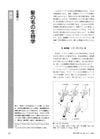Search
forProducts matching "hair growth hormones"
Tracking 8 products like 289 Hair Loss Conditioner for Men, 107 MINOXIDIL SHAMPOO FR-S1, 150 Brintop F Topical Solution, 154 Duprost and 155 Dutagen 0.5mg from by companies like Amazon, Minoxidil Express and Inhouse Pharmacy. View all 8 products »
Sort by
Research
240-270 / 1000+ results
research The Effect of the Antiandrogen 11α-Hydroxyprogesterone on Sebum Production and Cholesterol Concentration of Sebum
The antiandrogen 11α-hydroxyprogesterone effectively reduces skin oil and cholesterol when applied to the skin.

research Male Pattern Baldness in Relation to Prostate Cancer-Specific Mortality: A Prospective Analysis in the NHANES I Epidemiologic Follow-Up Study
Men with male pattern baldness have a higher risk of dying from prostate cancer.

research Urinary Steroids in Men with Male-Pattern Alopecia
Men with male-pattern baldness have higher levels of certain testosterone metabolites and may have more active androgen metabolism.

research Is The Metabolism Of Testosterone To 5α-Dihydrotestosterone Required For Androgen Action In The Skin?
Testosterone conversion to 5α-DHT may not be essential for its effects on the skin.
research Comparative Studies on Polyamine Levels in Plasma and Urine of Androgenic Alopecia Patients Treated with Finasteride for a Period of Three Years
Finasteride treatment for three years changes certain polyamine levels in the blood but not in urine.

research Endocrine-Skin Interactions
Hormone imbalances can cause specific skin changes, which may help in early detection of endocrine disorders.

research Effects of Finasteride Use on Prostate Volume and Serum PSA Levels in Young Patients
Finasteride reduces prostate size and PSA levels in young patients.

research In Vivo Uptake and Metabolism of Testosterone by the Skin and Other Tissues of the Rat
Rat skin takes up and processes testosterone differently than other organs, with testosterone being more important for the skin than its metabolite 5α-DHT.

research Effect of MK-386, a Novel Inhibitor of Type 1 5 Alpha-Reductase, Alone and in Combination with Finasteride, on Serum Dihydrotestosterone Concentrations in Men
MK-386 and finasteride together effectively reduce DHT levels, potentially treating acne and male pattern baldness.

research Long-Term Prophylaxis With Androgens in the Management of Hereditary Angioedema in Emerging Countries
Long-term use of androgens can help manage Hereditary Angioedema (HAE) but may cause serious side effects, so alternative treatments with fewer side effects are being considered.

research Androgens and Female Sexual Function and Dysfunction—Findings From the Fourth International Consultation of Sexual Medicine
Androgens play a role in female sexual function, and testosterone therapy can help women with low sexual desire, but more research is needed on treatments and long-term safety.

research Supplement Use Among Women Experiencing Hair Loss
Most women with hair loss take more supplements than average, but these often don't help and can be risky and costly.

research Quantification of Reproductive Hormones in Hair of Captive Adult Brown Bears and Their Application as Indicators of Sex and Reproductive State
Measuring reproductive hormones in brown bear hair could help identify their sex and reproductive state, but better collection methods or lab techniques are needed.

research Biology of Human Hair Growth and Common Baldness
The document suggests that male hormones likely affect hair growth and baldness, and future treatments might involve stem cells and androgen-independent cells.

research Skin Changes From Taking Hormonal Contraceptives
Taking hormonal contraceptives can cause skin changes, including hair loss, due to the effects of synthetic sex hormones.

research The Role of Adipocytes in Tissue Regeneration and Stem Cell Niches
Fat cells are important for tissue repair and stem cell support in various body parts.

research Hair Loss (Alopecia or Baldness)
Baldness is often hereditary and linked to male hormones, becoming noticeable when half the hair is lost.

research Thyroid Receptor Agonists for the Treatment of Androgenetic Alopecia
Thyroid receptor agonists may treat male pattern baldness without harmful side effects.

research Topically Applied Thyroid Hormones Stimulate Hair Growth in Organ-Cultured Human Scalp Skin
Applying thyroid hormones to the scalp can help hair grow.

research Effects of Hormones and Endocrine Disorders on Hair Growth
Hormones significantly influence hair growth, with conditions like hirsutism and patterned hair loss linked to hormone levels; more research is needed for full understanding.

research Neuroimmunology of Stress: Skin Takes Center Stage
Stress can worsen skin and hair conditions by affecting the skin's immune response and hormone levels.

research Thyroid Hormones Directly Alter Human Hair Follicle Functions: Anagen Prolongation and Stimulation of Both Hair Matrix Keratinocyte Proliferation and Hair Pigmentation
Thyroid hormones help hair grow, reduce hair loss, and increase hair pigment.

research Drugs and Hair Loss: Mechanisms and Clinical Implications
Some medications can cause hair loss, but stopping the drug usually leads to recovery within 3 months.

research Sexual Hormones in Human Skin
Human skin makes sexual hormones that affect hair growth, skin health, and healing; too much can cause acne and hair loss, while treatments can manage these conditions.

research Current Landscape and Emerging Therapies in Hair Loss Treatment for Androgenetic Alopecia
A new topical treatment using SAMiRNA technology shows promise in increasing hair growth for androgenetic alopecia.

research Impact of Thyroid Dysfunction on Hair Disorders
Thyroid problems can cause hair loss and change hair texture.

research Physiological Regeneration of Skin Appendages and Implications for Regenerative Medicine
The document concludes that understanding hair and feather regeneration can help develop new regenerative medicine strategies.

research Recent Advances in Hair Biology and Treatments of Androgenetic Alopecia
Certain growth factors regulate hair growth cycles, male hormones affect hair cycles, and drugs like Minoxidil and Finasteride can stimulate hair growth and inhibit male pattern baldness respectively.

research In This Issue
Advancements in hair biology include new treatments and tools for hair growth and alopecia.